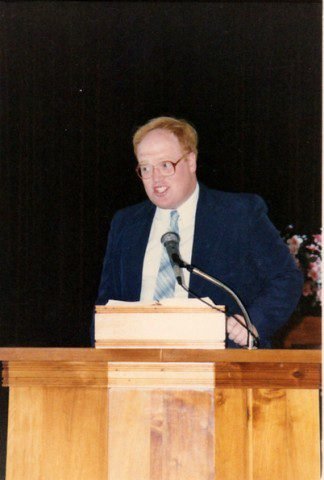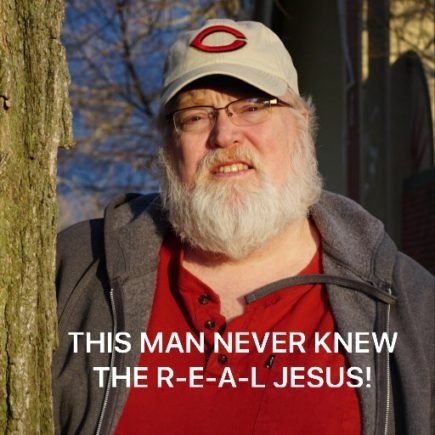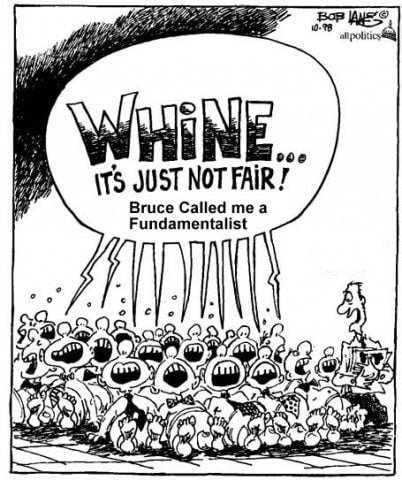
Behold, how good and how pleasant it is for brethren to dwell together in unity! (Psalm 133:1)
A new commandment I give unto you, That ye love one another; as I have loved you, that ye also love one another. By this shall all men know that ye are my disciples, if ye have love one to another. (John 15:34,35)
Finally, be ye all of one mind, having compassion one of another, love as brethren, be pitiful, be courteous: Not rendering evil for evil, or railing for railing: but contrariwise blessing; knowing that ye are thereunto called, that ye should inherit a blessing. For he that will love life, and see good days, let him refrain his tongue from evil, and his lips that they speak no guile: Let him eschew evil, and do good; let him seek peace, and ensue it. (1 Peter 3:8-11)
These Bible verses and others present a strong argument for unity and love being essential to Christian faith. The writer of 1 John makes it clear that anyone who does not love his brother is not a Christian. Several times in the New Testament, the Law and the Prophets are summed up thusly: love God and love your neighbor as yourself. In the Gospels, professing followers of Jesus are commanded to love even those who hate them. And speaking of unity, the writer of Proverbs 6 lists seven things God hates, one of which is “sowing discord among the brethren.”
Love and unity are essential to Christianity, yet rarely, if ever, demonstrated by Evangelicals. Instead, Evangelicals are known for fussing and fighting over everything from theology to music styles. Countless internecine wars have been fought over matters as trivial as hairstyles, wearing jewelry, women wearing pants, which Bible translation to use, whether to give altar calls, and how often churches hold services. No matter is too trivial for Evangelicals to fight over. One need only look at how many Evangelical sects there are and how fragmented individual churches are to see that Evangelicals never received the “Love and Unity” memo. And thanks to the Internet, the MMA machinations of Evangelicals are on display for all to see, complete with violent personal attacks on fellow Christians deemed heretics.
What’s heresy? In the Evangelical world, heresy is any belief different from mine. One need only watch Arminians and Calvinists go toe to toe over who has the “true” gospel. Each side casts the other as heretical, calling into question the opponent’s salvation. As a long-time Calvinist, I met numerous pastors who believed Arminianism was a false gospel, and anyone who believed it was unsaved! And now that Calvinism has made huge inroads within the Southern Baptist Convention (SBC) and has infected numerous SBC colleges and seminaries, non-Calvinistic Baptists are saying that John Calvin’s progeny are preaching a false gospel. Some go even so far as to suggest that Calvinism leads to atheism!
Years ago, I pastored a church affiliated with the Christian Union (CU) denomination. In the early 1900s, CU suffered a schism over the doctrine of sanctification. This led to the establishment of a new denomination called the Churches of Christ in Christian Union. Both denominations have a strong, but aging/dying, presence in Ohio. As an Independent Fundamentalist Baptist (IFB) pastor, I witnessed numerous conflicts and church splits. While virtually all Evangelicals are Fundamentalists theologically, (see Are Evangelicals Fundamentalists?) some sects, pastors, and churches take it to the extreme. Such is the case with the IFB church movement. The narrower beliefs become the more likely it is that there will be division. One oft-told joke about how the IFB church movement got its start comes from a story about Abram and Lot in Genesis 13:
And Abram went up out of Egypt, he, and his wife, and all that he had, and Lot with him, into the south . . . And Lot also, which went with Abram, had flocks, and herds, and tents. And the land was not able to bear them, that they might dwell together: for their substance was great, so that they could not dwell together. And there was a strife between the herdmen of Abram’s cattle and the herdmen of Lot’s cattle: and the Canaanite and the Perizzite dwelled then in the land. And Abram said unto Lot, Let there be no strife, I pray thee, between me and thee, and between my herdmen and thy herdmen; for we be brethren. Is not the whole land before thee? separate thyself, I pray thee, from me: if thou wilt take the left hand, then I will go to the right; or if thou depart to the right hand, then I will go to the left. And Lot lifted up his eyes, and beheld all the plain of Jordan, that it was well watered every where, before the Lord destroyed Sodom and Gomorrah, even as the garden of the Lord, like the land of Egypt, as thou comest unto Zoar. Then Lot chose him all the plain of Jordan; and Lot journeyed east: and they separated themselves the one from the other.
Much like Abram (Abraham) and Lot, the IFB church movement came to be when they said to their former denominations or churches, you go your way and I’ll go mine. The IFB church movement was birthed from denominational battles over various points of Christian doctrine and practice. Scores of churches and pastors left denominations such as the Southern Baptist Convention and the American Baptist Convention, establishing their own fellowship groups or quasi-denominations. In the intervening seventy years, IFB churches and pastors have continued to squabble, fuss, and fight, resulting in a plethora of church splits and new, more “pure” groups. Each group believes they have the truth, and those who believe differently are either deemed heretics or heterodox brethren. This infighting is the main reason IFB churches tend to turn over their memberships every few years. The IFB churches I pastored had a steady stream of members from other churches visiting our services — church hoppers, I called them. These devoted followers of Christ were disgruntled or upset with their current churches, so they left, looking for greener pastures. One church I pastored took in over twenty-five members from one nearby IFB church. They loved my preaching, that is until they didn’t, and off they went to find a new church to attend. Many of them returned to their old church once the offending pastor left. Some of them were instrumental in starting new IFB or Bible Fellowship churches in the area.
I follow and read numerous Evangelical blogs and news sites. One thing is certain: Evangelicals continue to fuss and fight, not only with liberal/progressive Christians, mainline denominations, but amongst themselves. Proverbial blood runs in the streets, a never-ending stream thanks to perceived offenses and heresies. The last thirty-five years have given rise to what is called “discernment ministry.” These ministries believe God has called them to be gatekeepers or monitors of the Book of Life. They alone know what “truth” is, and they aren’t shy about calling out anyone and everyone who violates their standard of orthodoxy. Long-time readers — all the way back to 2007-2008 when I was still a Christian — might remember a previous iteration of this blog attracting the attention of “discernment” preachers such as the late Ken Silva and a man who called himself Pastor Boy (he is now divorced and no longer in the ministry). (Please see the post, Rob Bell and Homosexuals on Silva’s “discernment” blog. I was still a Christian when Silva and I got into a debate about homosexuality.) I was working my way through what it was that I actually believed theologically, and these esteemed discerners of “truth,” and others like them, decided that I was a false prophet and a heretic. My later deconversion was proof to them that they were right about me; that I never was a True Christian®.
It seems to me that there is a huge disconnect between what the Bible says about love and unity and how Evangelicals practice their faith. Evangelicals are roundly condemned as preachers of hate, even more so since they climbed into bed with the Republican Party and Donald Trump. Millennials and Generation Z are leaving Evangelical churches in record numbers. Many of them are abandoning organized religion altogether, and an increasing number of them have become agnostics or atheists. Why are Evangelical churches hemorrhaging young adults? Separatism and anti-culturalism, along with social Fundamentalism — anti-abortion, anti-LGBTQ, anti-public schools, anti-science, and anti-women, to name a few — are driving the train as it leaves the station. Evangelicalism is losing two generations of potential congregants, leading to widespread panic among church leaders and church growth gurus. Of course, Evangelical extremists see such departures as a good thing; that doctrinal purity is far more important than love and unity. Quality rather than quantity, they say. We need to love what God loves and hate what God hates! Of course, the beliefs and practices they love and hate are, oh so ironically, the very things they say their God loves and hates.
I am well aware of what the Bible does and doesn’t say on these issues. I long ago concluded that the Bible can be used to prove anything and that when asked which sect has the “truth,” I reply, all of them. They all have proof texts to support their versions of orthodoxy and orthopraxy. Thus, everyone is right. Here’s my advice to Evangelical truth seekers. Want to find the “true” church? Choose the one which has the best potlucks.
Christianity in general, and Evangelicalism in particular, is split into thousands of sects, and countless independent congregations, each believing that they are the holders of the one true faith. Lost on Protestants and Catholics and Evangelicals and Mainline Christians alike is what their fussing and fighting says to the unwashed, uncircumcised Philistines of the world. Where’s the love and unity? worldlings ask. Where are the believers who practice what the Bible says about love in 1 Corinthians 13?
What if I could speak all languages of humans and of angels? If I did not love others, I would be nothing more than a noisy gong or a clanging cymbal. What if I could prophesy and understand all secrets and all knowledge? And what if I had faith that moved mountains? I would be nothing, unless I loved others. What if I gave away all that I owned and let myself be burned alive? I would gain nothing, unless I loved others. Love is kind and patient, never jealous, boastful, proud, or rude. Love isn’t selfish or quick tempered. It doesn’t keep a record of wrongs that others do. Love rejoices in the truth, but not in evil. Love is always supportive, loyal, hopeful, and trusting. Love never fails! (CEV)
Where, oh where, can we find such faith? Not among Evangelicals, that’s for sure. I am an atheist for many reasons, one of which is the lack of love and unity among Christians. If I looked at Christianity as a whole and saw people loving God and loving their neighbors, I perhaps would pause and reconsider the value of being a follower of Jesus. If I saw a group united in doctrine and practice, I might, at the very least, ponder the historic claims of Christianity. However, all I see is the fussing and fighting, and this tells me that whatever Christianity might have been twenty centuries ago, THAT version of Christianity no longer exists. What we have today is a religious version of WWE (World Wrestling Entertainment). While it is unlikely that anything or anyone will successfully “save” me from atheism/agnosticism/humanism, if I truly saw love and unity in action, I might, at the very least, admire those who follow after Jesus. Until then, I will continue to treat Evangelicalism as a blight on the human race, a worldview that causes great harm. Want to change my opinion of you, Evangelicals? Repent.
Bruce Gerencser, 68, lives in rural Northwest Ohio with his wife of 47 years. He and his wife have six grown children and sixteen grandchildren. Bruce pastored Evangelical churches for twenty-five years in Ohio, Texas, and Michigan. Bruce left the ministry in 2005, and in 2008 he left Christianity. Bruce is now a humanist and an atheist.
Your comments are welcome and appreciated. All first-time comments are moderated. Please read the commenting rules before commenting.
You can email Bruce via the Contact Form.



